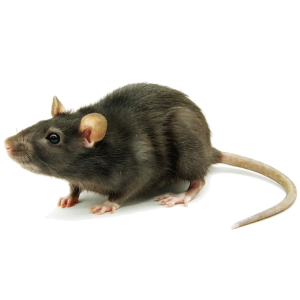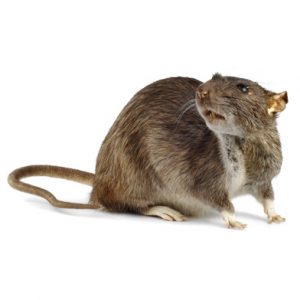Rat Control Atlantic Seaboard is a serious yet often over looked service, this plague of Rats, Mice and other Rodents that’s taking over our beautiful city of Atlantic Seaboard needs to be stopped as a matter of urgency. Cape Town Pest Control has a specialist team of experts in the field that can single handedly stop them.
Have you ever taken a night time drive through the busier commercial part of our city? Rats rummage through rubbish, they crawl up cables and conduits to gain access to buildings. They live in the sewer systems and carry those germs and pathogens to your home or workplace. The Rat Control Atlantic Seaboard team of experts have a specialized approach to Rat and other Rodent Control treatments.
Rat Control Atlantic Seaboard is important for the control of disease spreading rodents.
Rats are vectors for disease, the areas they frequent and the foods they eat sustain diseases such as Rat-Bite Fever, Lymphocytic choriomeningitis and Salmonella. Although some illnesses are only transferred through bites and scratches there are many that passed on by urine and feces as well as Insects such as Fleas and Ticks.
According to the Rat Control Atlantic Seaboard guys, there are two main ways in witch rats can transmit disease. Direct and indirect transmission. Direct transmission is from a Rat bite, a scratch or urine and droppings. Indirect transmissions is through a third party like Ticks, Fleas and Mites.
Diseases that are directly transmitted by Rats – Rat Control Atlantic Seaboard
- Hantavirus Pulmonary Syndrome – This is a Viral Disease that is mostly obtained by direct contact with Rat and Mouse droppings or Urine. This Virus can also be contracted by inhaling dust contaminated by urine and Droppings. HPS is a rare but deadly Lung Infection.
Symptoms: Usually fever, muscle aches, fatigue, head aches, nausea, belly ache and vomiting. Symptoms usually present them self about 2-3 weeks after infected. Symptoms of further infection are Shortness of breath and coughing, this is usually followed by Death by a Pulmonary Edema, this is when your lungs fill with fluid. - Leptospirosis – This is a bacterial infection that is usually contracted by contaminated drinking water. This is common in people that work with animals. Rat Control Atlantic Seaboard team of experts deem this to one of the more common illnesses contracted by Rats.
Symptoms: As with HPS, the symptoms are similar and commonly misdiagnosed. So many diseases have the same symptoms. The first phase of infections start with a fever, chills a head ache, vomiting and diarrhea. Phase two usually starts and ends with kidney and liver failure, this part of infection is called Weils Disease. In September 2015, 2 Inmates had dies and more than 4000 evacuated from Pollsmoor Prison due to this disease.
Diseases that are indirectly transmitted by Rats – Rat Control Atlantic Seaboard
- Black Plague – Commonly called Bubonic Plague, this plague can be contracted by a Flea bite that has had a blood feed on an infected Rat.
- Symptoms: Early onset of the Bubonic Plague include Fever, Fatigue and Muscle Cramps and Seizures. As the infection grows Lymph Notes start to swell, black dots start to develop and one starts coughing up blood. Gangrene may start to develop on fingers and toes as well as in the tip of your nose. This illness is deadly and ends in Delirium, Coma and Death is severe cases. 15% of cases in treated cases are fatal and about 60% of untreated cases are Fatal.
These are but a few of the more common yet rare diseases, the list goes on. Rat Control Atlantic Seaboard are a specialist team of Rodent Exterminators that handle all cases of Rat Infestations in a unique and integrated manor. Rat populations are on the up rise here in Atlantic Seaboard and the need for control now is greater than ever.
Rat Control Atlantic Seaboard identifies and Exterminated the two main species of Rat here in Atlantic Seaboard.
Black Rats – Rat Control Atlantic Seaboard

Physical description – Black Rats (Rattus rattus) are the smaller of the two with adults ranging between 12cm and 18cm. Their tails are a lot longer in comparison to their bodies with a length of 15cm – 22cm. Adults weigh in at 75grams to 230grams although larger Black Rats are rare. The general color varies from light brown to black with a much lighter under belly. One should generally identify rat species on physical characteristics rather that color as this varies due to their origin and living conditions. A general rule of thumb is the shape of their droppings, the body tail proportion and lastly the shape of snout and ears. Black Rats have larger ears and a more pointed nose. Here in Atlantic Seaboard, Black Rats are a lot less common.
Diet – The diet of Black Rats are very similar to those of Brown Rats, with them being largely omnivorous anything they manage to forage seems to be fair game. From seeds of fruit to fungi and even insects they are not picky at all. In busy and dirty cities, Black Rats will have a wide selection of choices with the most popular option being animal feds as well as oily crisps and potato chips.
Areas they frequent – Black Rats are avid climbers and love the roofs of residents here in Atlantic Seaboard. Because they are smaller they are much more agile and love to live in dense foliage, trees and roof spaces. These make for safer and warmer areas through the winter.
Brown Rats – Rat Control Atlantic Seaboard

Physical description – Also knows as Norway Rats (Rattus norvegicus), these Rodents are bigger and heavier than their black counterpart. Adult Brown Rats reach a size of about 25cm with male Rats slightly larger than females Their tail is a further 18cm – 25cm in length and mostly hairless. In an out of control urban Rodent Infestation sizes range between 250grams to 350rams respectively. The color of a Brown Rat varies between dark grey to brown depending on their environment and area they are from.
Diet – The diet of Brown Rats are very metropolitan. They are chancers, they will feed of anything from Insects such as Cockroaches and Centipedes to old food and even road kill. Brown Rats are omnivorous and their diet largely depends on the areas they inhabit. The availability of food plays a large role in the diet they choose, although fatty proteins and fruit are favored above most other things.
Areas they frequent – Brown Rats being slightly larger than Black Rats are less likely to be found in roofs of houses and buildings although its not that uncommon. Their more heavy set bodies make it slightly more difficult to climb up and down vines and trees for food and water. More common areas Brown Rats are found are sewer systems, compost heaps and dense foliage or rubbish pies. These areas are usually close by to a constant food and water source.
Although the above two Rats are different, the names and places they frequent may not necessarily mean they wont be anywhere else. Rat Control Atlantic Seaboard Experts need to express that Rats are survivors, their appearance and size may differ greatly by location and diet. Both these Rats are common, they can both climb and are both omnivorous.
Rat Control Atlantic Seaboard techies are experts and exterminate Rats in any situation.
The staff at Rat Control Atlantic Seaboard are trained to identify the species of Rat, the environment factors that contribute to the Infestation and furthermore treat the infestation fast and effectively. The Rat Control Atlantic Seaboard specialists also educate clients on good housekeeping practices that aid in long term Rat and Rodent Control.
If you reside in or around Atlantic Seaboard and need the assistance of Rat Control Atlantic Seaboard team of experts, please feel free to contact us using the form on the right. Our staff are friendly and happy to help with any Pest related extermination and even helpful hints and tips. Quotes are free and no obligation.
Rat Control Atlantic Seaboard deal with any Rodent Infestations in a Domestic, Commercial or Industrial setting. We handle Contract Pest Control or even a once off treatment, no job is too small or too big for us to handle.